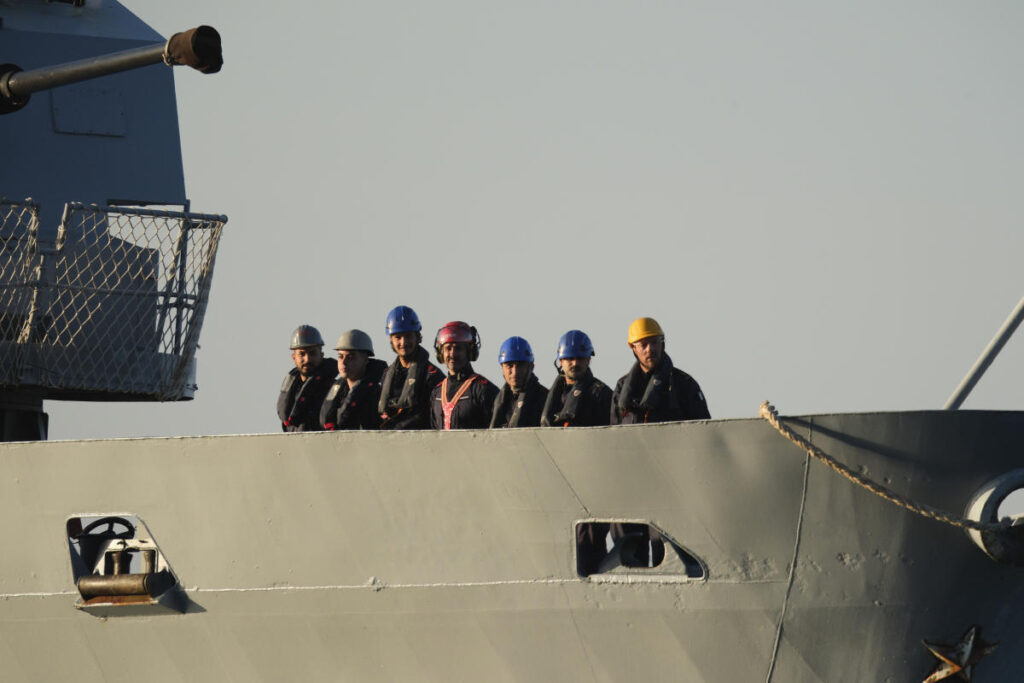The situation regarding migration in Albania has taken a significant turn following the repatriation of the first twelve migrants by an Italian navy ship on Saturday. This action stems from a recent Italian court ruling that challenges a bilateral agreement between Italy and Albania aimed at processing migrants in Albania. Under this five-year deal, Albania was set to accommodate 3,000 migrants monthly, facilitating their assessment for possible asylum applications in Italy or their deportation to their home countries. However, the court’s decision represents a significant obstacle to implementing this arrangement, as it failed to endorse the detention of these twelve migrants from Bangladesh and Egypt, citing concerns about safety upon their return.
Italian Premier Giorgia Meloni has been vocal about this development, asserting that this agreement was a pioneering “model” for managing illegal migration. Nevertheless, the court’s ruling that categorizes Bangladesh and Egypt as unsafe countries to return migrants has raised alarms. Critics, including Meloni, have expressed that such judgments could hinder the government’s ability to effectively manage migration, suggesting that this legal interpretation could render the Albania program unfeasible for a majority of migrants, thereby complicating the intended process. Meloni has expressed disappointment with the judiciary, asserting that the government’s authority should dictate which nations are deemed safe for deportation.
As Italy grapples with this situation, Interior Minister Matteo Piantedosi affirmed that the government intends to contest the court’s ruling. In a press briefing, Meloni indicated her plans to convene a Cabinet meeting to formulate strategies to navigate this judicial setback. She emphasized the government’s role in determining the safety of sending migrants back to their countries, sidelining the judiciary’s influence in this context. The prime minister’s push for altering norms highlights the contentious relationship between the legislative and judicial branches regarding migration policy.
It is critical to note that the Italian court’s ruling reflects a broader discourse surrounding human rights and international norms. While both Bangladesh and Egypt are not currently embroiled in war or significant humanitarian crises, the court’s decision draws from recent international rulings highlighting that even localized discrimination or persecution can be grounds for denying deportations. This nuanced interpretation of safety and human rights concerns underscores the complexities of migration law in Europe, revealing the conflicts between political ambitions, judicial oversight, and humanitarian standards.
Proponents of the Italy-Albania agreement, including European Commission President Ursula von der Leyen, have praised the initiative as an innovative approach to shifting the burden of processing migrants. The strategy aims to alleviate some of the pressures faced by EU countries like Italy, which have seen a significant influx of migrants. However, human rights organizations have raised alarms that outsourcing asylum-seeking processes to a non-EU country could set a dangerous precedent, potentially undermining the protections offered to vulnerable individuals and refugees seeking safety within Europe.
In conclusion, the unfolding events in Albania highlight the complexities intertwined with international migration policy, human rights considerations, and domestic legal frameworks. The Italian government’s preparedness to challenge the court’s ruling reflects a broader tension between policy implementation and judicial scrutiny while raising questions about the ethical implications of outsourcing migration management. As governments across Europe continue to search for effective solutions to address the surge in migrant arrivals, the Italy-Albania deal serves as a pivotal case study in the ongoing debate surrounding migration governance and human rights.

